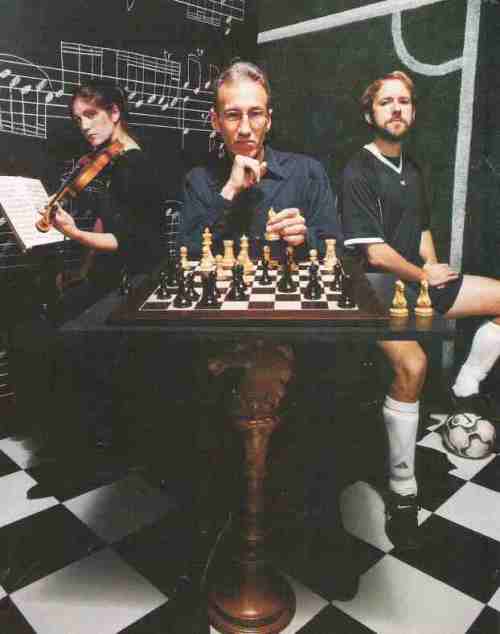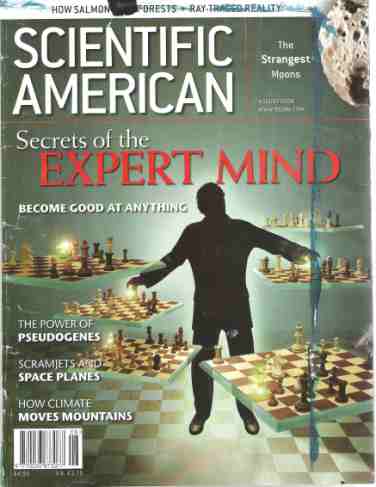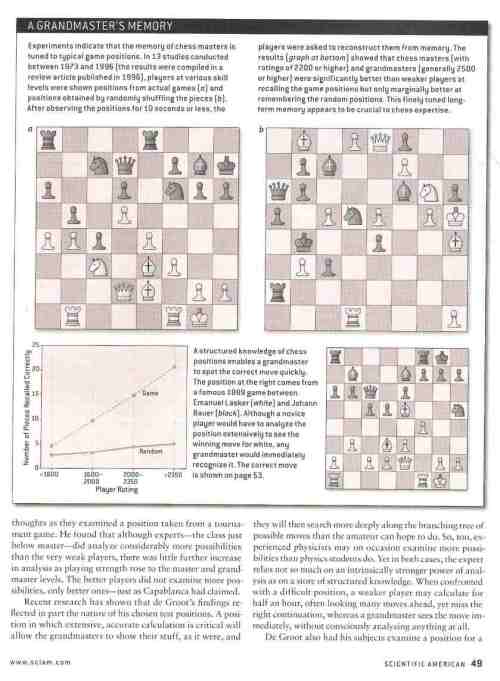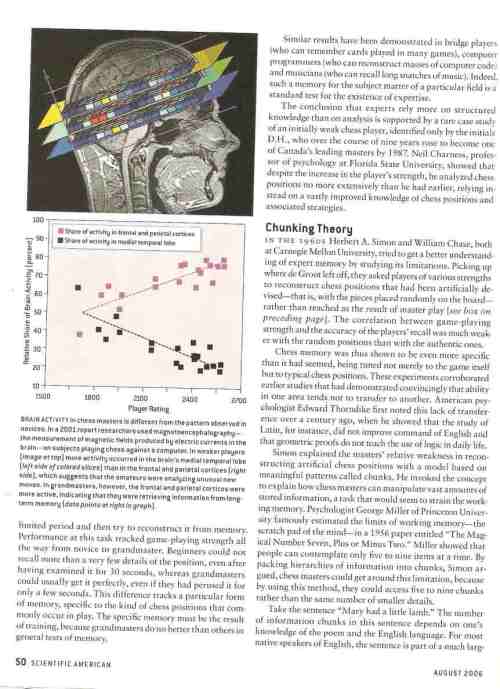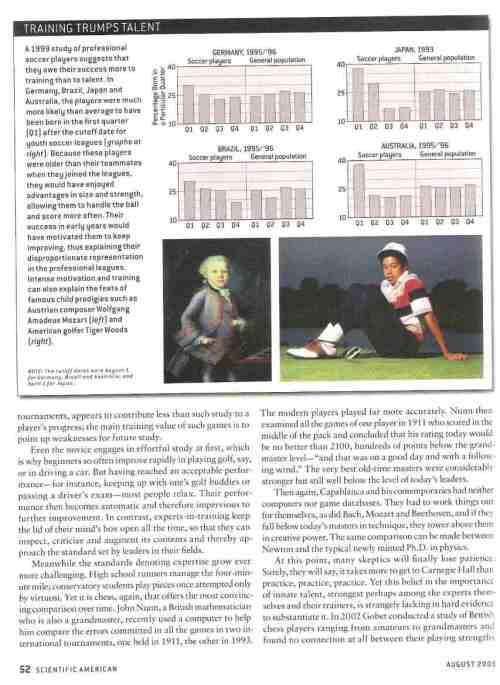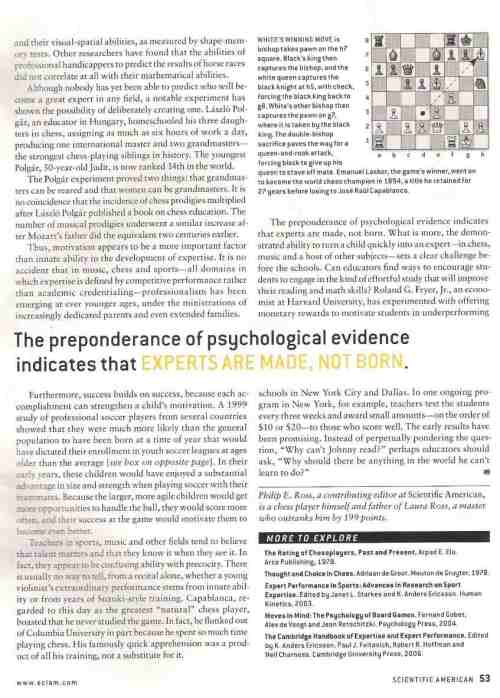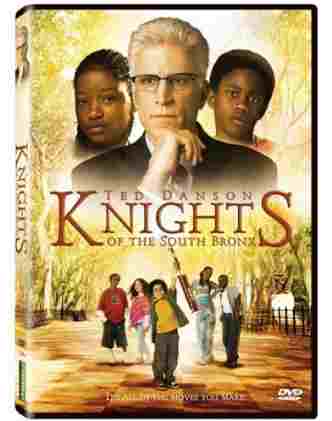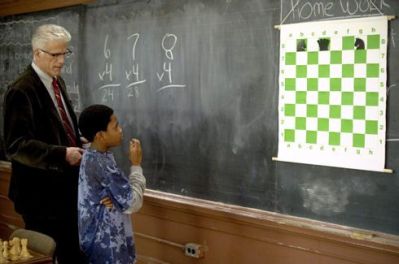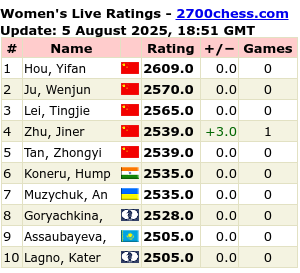Click on the image for a larger view
I had no intention to blog about what you’re going to read in this post. My intention was to blog about the type of chess player you might be – do you see yourself in one of the photos in the above image? – and to put the question to you: What kind of chess player are you? Do you think carefully about your move…do you make the move instantly?…Are you a careless player? There are many more questions I could have asked you – I think you know them all. Maybe the picture ties in- in some way – with what I’ve found and which I want to share with you.
In my SEARCH I came across this link and thought to add the information- for readers who haven’t read it before or haven’t read something similar on my blog before. The next question is: Have you got what it takes to be a chess player? [a serious chess player – I might add] Even children sometimes turn up in large groups very eager to play/learn and then discover that chess is actually not for them – or not what they thought it is all about. At the bottom of this entry you’ll find a link to an entry on my blog about Chess Personalities and a link to Brunel University about research they’ve done. Enjoy the reading from the above link quoted:
Traits of a Good Chess player
Quote of the Month: Not all highly intelligent people play chess well, and not everyone who plays chess well is highly intelligent (although if you ask them…!) A beginner often wonders if he has what it takes to become proficient at the Royal Game. The answer is that there are many aspects of intelligence and personality that correlate with the potential to become a good chess player. Almost everyone realizes that a lot of hard work will be necessary to climb the ladder of chess success, and few want to put in many hours of work with little prospects for reward. Knowing that you have some of the requisite talents is always helpful in keeping up your spirits. Several lists of applicable chess traits have been published, so I thought it would be fun to give it a Novice Nook spin. I have separated the traits into four groups:
“IQ” Aspects
Physical Traits
Personality Traits
Emotional Traits
…but there is quite a bit of overlap, so these are really just rough groupings. “IQ” Aspects
Memory – The ability to remember things is certainly a “no-brainer”, insofar as being helpful for chess. First there is the obvious ability to retain more chess patterns and what you know about them, including opening and endgame knowledge, tactical positions and ideas, positional maneuvers. In addition, there is also everything else you “know” about chess – including guidelines, how to handle a six-hour World Open game, and the information in Novice Nook. The better the memory, the better you can store the information and retrieve it quickly and accurately. It is also well documented that memory is not as sharp when you get older, so age does degrade this ability. Note: “Knowledge” is not an ability, but it is the information you retain better with a good memory. It is also worth noting that knowledge is not correlated one-to-one with your playing strength; for example, a player who reads more books and retains more knowledge is not always better than one who has read much less. As one of my chess friends once said, “Never confuse ignorance with stupidity” – the corollary being “Never confuse knowledge with intelligence.”
Spatial Relationships – I call the special vision which enables one to
understand what is happening on a chessboard “Board Vision”. But the
general ability to process spatial relationships is more than just that chessspecific skill; it is the capability to see and/or imagine what is happening in two or three dimensions. An example of how this is tested would be the type of IQ test question where they show you an unfolded cube and you are asked to fold it in your head and select which of four folded cubes could be created from the fold. The ability to visualize geometric patterns is valuable in chess when you are trying to look ahead and imagine a possibly occurring position. An example of an error using this ability would be a “retained image” – when you fail to see that a piece has moved off its square and you visualize it doing something on a later move when, in fact, if that line were actually played that piece would no longer be there!
Deductive Logic – This is the “If A implies B and B implies C, then A
implies C” type of logic. In chess you need deductive logic to figure out what
is forced and what is not. For example, during analysis of a position you need to be able to look at a move and deduce something like “Because of so-and so, if my opponent does not stop my killer move (or whatever), then I can do this, so he must make move A or move B to prevent it or else I win.” A common deductive error would be assuming your opponent will make a move that you think is forced when in fact another move is better. Of all the skills in chess, I believe that this one is perhaps the most popularly recognized by the general public. Your deductive logic is another part of the thinking process that slows as you get older.
Physical Traits
Concentration – Playing chess correctly requires a lot of thought(!) The
better able you are to concentrate and focus your thoughts on the task at hand, the better. If your mind is wandering – even thinking about a mistake you made earlier in the game – that can only hurt you. Lack of concentration
detracts from your ability to perform from the task at hand, which is usually
finding the best move in the current position within the given time available.
Stamina – This is the physical ability to sit and play without excessive
tiredness or fatigue throughout not just a long game, but possibly even a long series of games in a tournament or match. One of the problems older players have is lack of stamina; they get tired more easily. You can increase your stamina by eating and drinking correctly before and during a long game, getting proper rest, and entering the event in good shape. That is why it is helpful to have an aerobic sport, like tennis, jogging, or swimming, to
augment your chess lifestyle – these are beneficial for your non-chess
welfare, too!
Nerves – In the course of chess history, it has been stated about several toplevel grandmasters that were not serious World Champion candidates because they did not have the nerves for top-level play. Playing chess for fun is one thing, but playing for your livelihood – or your place in history – is quite another. It requires strong nerves to play chess at the highest level, but having “bad nerves” affects your play negatively at any level.
Personality Traits
Carefulness – Of all the traits that make for a good chess player, one of the
most important is the ability to take your time on each move and try to find
the best one. And of the personality traits that support this ability, being
careful is the key trait. Interestingly, one can be too careful and, in that case,
you may even be afraid to move for fear of making a mistake. This fear
inevitably leads to time trouble, requiring fast moves and resulting in even
bigger mistakes than the ones you had been avoiding by taking 12 minutes
instead of 6. Therefore, the best chess players are the ones that are careful, but not pathologically so. It should be noted that players who are not naturally careful in life can learn to be careful in chess! I have seen several players who were able to overcome their natural tendencies, but of course to do so one has to feel strongly that it is worth the special effort!
Caring – This trait is different than carefulness, and is actually more closely
related to some of the emotional traits below. You want to care about your
move, your result, your rating, and your reputation, but not too much. If you don’t care at all, you won’t work to improve it/them, and if you take these too personally then chess becomes too involved with your personal image and you will find it hard to take the necessary risks to play and improve.
Determination – This is one area in which I score well. I will not stop at
something until I get it right. My wife thinks I am a little nutty because I once took almost a year on the same tough cryptogram – I would not skip it or take a hint or look up the answer. She is right, of course, but that same
determination paid me good dividends when I wanted to become an expert, a master, and get my FIDE rating (back in the days when you had to have a
FIDE rating of at least 2205 to get one). One should differentiate game-time
determination to obtain the maximal outcome (“will to win” or “fighting
spirit”) with the longer-term career goal determination to do whatever it takes to become the best player you can. During a simultaneous exhibition at a local high school, I once met a student who, when he found out I was a chess master, said “Really? Wow! That’s cool. I live for chess.” I was a little
amazed by this pronouncement, so I said, “If you live for chess, then why
don’t you play in tournaments? For example, come a few miles down the road and play in some of the big events at the Adam’s Mark Hotel.” His
disappointing reply, “Oh no! I couldn’t possibly do that!” I guess that makes
him like a kid who lives for baseball but cannot possibly think of playing in
Little League! His answer was not a mark of determination!
Note: “Killer-instinct” is not the same as “fighting spirit”. Killer-instinct is an
intense desire to either beat down the opponent, or at least finish off a won
game. Good chess players seem to have either one of two special traits: killer
instinct or expert problem solvers. Without one of those two traits it is hard to have the determination and perseverance to play hard each move, game after game. I am more the problem solver type – I want to find the best move each and every time and I am not trying to wound my opponent’s ego.
Perseverance – This trait is similar to determination, but it represents not the will to do well, but the ability to carry on that will despite whatever
roadblocks are presented: lack of time to play and study, unexpected and
unnerving losses, the scepticism of others, etc. Again, there is short-term
game-time perseverance and the more common long-term career goal
perseverance. Surprisingly, I find a lot of students who have the
determination (otherwise they would not hire me as their chess coach), but
lack the perseverance – they want quicker results than is possible, get
discouraged at the inevitable setbacks, and cannot maintain their chess
determination for the years that are required to reach their lofty goals. Since
extensive chess progress can only be measured in years, it is not surprising
that many players cannot persevere in what it takes to maintain improvement over that time period. Note: I did not forget “Willpower”, but it is mostly contained within determination and perseverance.
Capability to overcome natural shortcomings for the good of your chess
play – This is a special type of trait which enables you to not dwell or be held
back by any shortcomings you have, but to be able to rise above them due to your strong desire to play well and improve. Almost every player thinks, “I’m not this or I am not that.” Everyone has shortcomings in one area or
another. No one has a great memory and great deductive logic and great
nerves and everything else – even the Fischers and Kasparovs are not perfect (but they are a lot closer than the rest of us!) However, some players let their concern about these shortcomings hold them back. Further, in some cases, these shortcomings can mostly be overcome by will. For example, suppose you are naturally impatient or not very careful. It still may be possible, when sitting down at the chessboard, to say to yourself, “OK, I am naturally impatient (or not careful), but if I am going to play good chess I have to take my time on every move and be very careful on every move or else I can let the game slip away just by that one bad move.” If you are able to say this to yourself, you may be able to overcome your natural impatience for the good of your game. Once you get in the habit of consistently practicing correctly, then it becomes easier and easier, despite any natural tendencies otherwise.
Confidence – Like many of these other traits, either extreme is bad: too much confidence is overconfidence, which often leads to carelessness, or lack of respect for the opponent. On the other hand, if you play with lack of
confidence your results will surely suffer. Chess is a mental sport, and one’s
lack of confidence often becomes a self-fulfilling prophecy. Let me augment
this observation with a brief story: As a teenager I had a friend who played
regularly and studied chess diligently. For example, in the openings he
learned the English and the Caro-Kann. But in tournaments his low rated
opponents did not play into his study lines and he suffered from very poor
results, getting an 1100 rating based on several events. He then quit playing.
Ten years later he had not played nor picked up a chess book, but asked to
play in one of my invitational round robin tournaments, filled with players
rated 1300-1500. Despite not having played in a decade and being the lowest rated player, he finished in second place with a performance rating of almost 1700. I asked him how this was possible. He said that maturity made the difference – he no longer worried about what his opponents were doing and just enjoyed playing. Whereas before he doubted his ability and was affected by his opponent’s weird play, now he was confident that he could just play well and do the best he can. So the extra 500 points or so of playing strength was almost all due to his new-found confidence and lack of worry.
Awareness – A player who can keep his awareness and be cognizant of what
is important has a big advantage. For example, when an experienced player
starts to realize that the time is running short and time management is
becoming a bigger and bigger part of the play, he has an advantage over an
opponent who either is not as aware of the importance of this change, or is so but does not change his priorities. Similarly, being aware of possibilities, such as unexpected opponent blunders, or sudden changes in the phase of the game, is a distinct asset.
Flexibility – In a similar manner to awareness, flexibility of plan and action is a big asset. If you are not flexible enough to adapt to the change in state, then being aware of that state is not much use. It is also very important to be
flexible in your learning. This flexibility is related to the next trait, open-mindedness.
Open-Mindedness – The ability to listen and to consider new ideas (or
realize that the old ones you have are at least somewhat misbegotten), is very important. It is very difficult to learn if you “know” you are right or not open to new ideas, or possibilities of what you are doing wrong. A brilliant,
stubborn beginner probably will never get past the beginner stage since it will be very difficult to learn from his mistakes, even (or especially!) if they are pointed out to him. The good news is that in chess if you are not very openminded you tend to retard your own progress. Therefore, if you can recognize the cause of this lack of progress, it may jar you out of your complacency.
Emotional Traits
Ability to deal with losses as a learning tool – This is a very important
indicator of how good a chess player someone is going to become. Suppose a player take losses so hard and personally that you can’t speak to them and they don’t want to review or think about the game. Then not only will they not be able to optimally learn from those losses, but eventually the realization that they are going to lose thousands of games in order to become a good player will wear them down. At the other extreme we have someone who doesn’t care at all if they lose – they, like the tough loser, will also not review their games, because “it is just a game” and why should they spend effort to avoid repetition of their cause of defeat if it does not matter? These players are doomed to repeat their mistakes over and over and never get much better. The best outlook is somewhat in between: you cannot take your losses too personally but you have to be the type who vows never to lose the same way twice. A player who takes great interest in their shortcomings and studies them in such a way as to minimize the chance of recurrence will usually be much better than the players who are at each extreme.
Pride in your moves and your reputation – I think this trait is a little
underrated. Players who take pride in each move have an advantage over players who are don’t care that much about each move. These latter players are often surprised when I ask them about what considerations went into a particular move, as if to say “Why should you care? It is not that important to me” or “This is just a medium speed internet game – why should I try my best?” But almost all strong players share the concern that they put in the proper effort on each move (time permitting) and try to reach the correct decision, or at least do the best they can. Can you imagine Garry Kasparov annotating one of his games and writing, “I made this move without much thought – I really didn’t care if it was a good one or not”?!
Ability to deal with setbacks, bad moves – This is different than
perseverance, which enables you to maintain your will after setbacks of any type. Perseverance is therefore part of this trait, but not the only part. For example, the ability to maintain equanimity – not lose your cool – when things have gone wrong, is important. Players who get upset and let previous moves affect their judgment of the current move, or even think about the previous move instead the current move, are almost making a big mistake. Playing chess is fun – This is the most common trait shared by chess players. Humans who lack this trait may become good scientists, doctors, lawyers, engineers, golfers, bridge players, video game champions, businessmen, or whatever, but they won’t become good chess players. Studying chess is fun – This is the flip side of the previous trait: take random chess players at a chess club and hand them Capablanca’s Best Games and ask them to read it, a certain percentage will decline and the rest will gladly accept. The ones that accept almost always find that doing chess work is fun. Assuming they have not already read this book and that no extraneous factors are at work, the ones that decline usually like to play chess, but find the studying side tedious. When I work with beginning chess players of all ages, this is one of the first things I notice: everyone wants to get better, but only the ones who find doing the “work” side fun will ever have a chance of getting anywhere. No matter how much the others are determined to get better, they can never overcome the fact that doing the “unfun” work on a hobby like chess cannot last very long.
Coachability – Despite some fiction to the contrary, no one becomes really good at chess in isolation. Many factors, including some of the above, can contribute to this trait. A player might have many reasons they are less coachable: bad listening skills, stubbornness, know-it-all, doesn’t care enough, lack of maturity, or just believes that books alone can make him a great player. In any case, coachable players obviously have an advantage in the long run.
Conclusion
Next time you run into someone who says, “So-and-so is really smart – he would make a good chess player”, consider how well that person fits some of the above, “non-IQ” criteria. And how well did you score? If you were above average on most of the critical requirements, that may mean that you have a promising career ahead – assuming you are not damagingly low on a couple of others! A player is usually only as good as his weakest link will allow him to be.
Click HERE to read about Chess Personalities and research done by Brunel University. The link will open in a new window.































